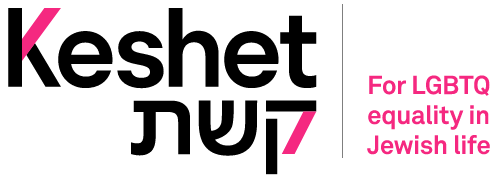Tisha B'av
Sermon given August 2, 2025
ONE. God is all powerful. TWO. God is all knowing. THREE. God is all good, and FOUR. Unjustified suffering exists in the world.
You may choose three.
This is how Rabbi Elliott Dorff, the rector of my rabbinical school, opened his senior seminar. On the first day of class, Rabbi Dorff wrote those four points on the board and asked us which one we were willing to sacrifice in order to have a sustainable personal theology.
Again, the problem is this: there are four statements, but only any three of them can actually theologically co-exist in harmony.
I’ll say them again:
1. God is all powerful
2. God is all knowing
3. God is all good
4. There is unjustified suffering in the world.
Think about it. If God is all-powerful, all-knowing, and all-good, how do we explain the existence of unjustified suffering? It’s a classic question. Wouldn’t an all-good, all-powerful, all-knowing God be able to swoop in and save people who are experiencing unjustified suffering?
Alternatively, if we were to say that unjustified suffering didn’t exist, that is to say, if we claim that all suffering IS justified, then yes, we could reconcile the other three statements.
Whether we were talking about a skinned knee or a murder spree or a rare disease or a war or a massacre, we could just say: this is part of God’s plan and therefore it is justified.
But you may be able to tell by my tone of voice that that argument does not cut it for me. At all. A god who in any way uses, say, the mass murder as a “justified” punishment is not a God I would be comfortable praising.
And that’s exactly why lots of Jews stopped believing in God, in the wake of the Holocaust. Many Jews stopped believing, stopped practicing, stopped identifying as Jewish, or simply seethed in anger at God for what had happened. Because there was no escaping the fact that unjustified suffering had occurred, to us and to our children, and that God had not prevented it from happening. Our traditional theology needed an update.
Tonight we will double down on the theme of suffering as we enter into the unique spiritual space of Tisha B’Av. We will sit on the floor in the small chapel, light candles, and grapple with the traumas our people have faced over the millennia: the destruction of two Temples, countless pogroms and expulsions and massacres, and in modern times, the Holocaust and October 7th and more. And contained within any discussion of suffering has to be the question– where is God’s responsibility in this, and where is ours?
Because violent antisemitism is the definition of unjustified suffering. To be hated just for who we are. And it is not only historical. It is part of the world you and I live in as Jews, part of the world we are raising the next generation of Jews within, and that makes our observance of Tisha B’av this year not only a theoretical spiritual journey, or an obligatory one, but a real and personal one. How do WE, personally, reconcile our own generation’s immense suffering, in addition to the Jews throughout history, with our belief in God?
Tonight we will also read the book of Eicha, of Lamentations, which describes the destruction of the Temple and the sacking of Jerusalem thousands of years ago. The name Eicha literally means “how?”, as in, how could God have let so many awful things happen to us?
How could a God who is all-good allow for such hateful actions in the first place, including the slaughter of children?
How could a God who is all-powerful not step in and fix the situation so that massacres didn’t occur?
How could a God who is all-knowing not see the harm that would come long-term by allowing such vitriol to fester in the hearts of us humans?
How - Eicha?
Well, God as portrayed in the book of Lamentations certainly has a plan, and certainly is in control. But I don’t know if I would call this God all-good, or all-kind. In Lamentations, the suffering of the Jewish people is clearly portrayed as a very painful but also Divinely-sanctioned punishment for our own misdeeds. We will read tonight:
הָי֨וּ צָרֶ֤יהָ לְרֹאשׁ֙ אֹיְבֶ֣יהָ שָׁל֔וּ כִּֽי־יְהֹוָ֥ה הוֹגָ֖הּ עַ֣ל רֹב־פְּשָׁעֶ֑יהָ עוֹלָלֶ֛יהָ הָלְכ֥וּ שְׁבִ֖י לִפְנֵי־צָֽר׃ {ס}
[Zion’s] enemies are now her masters,
Her foes are at ease,
Because the LORD has afflicted her
For her many transgressions;
Her infants have gone into captivity
Before the enemy.
This concept of a punitive yet righteous God is reinforced by countless examples from Scripture. We know these stories. In the Torah, God is sometimes wrathful, God wipes out civilizations, God turns people into pillars of salt, God commands Abraham to sacrifice Isaac, and tells B’nai Yisrael to slaughter other cultures. God as portrayed in the Torah is not always patient, not always kind, not always forgiving.
Now, on the one hand, this view can be accessible and even reassuring for people, because A) it lines up with a simple reading of the Bible and B) it means that God has a plan. God’s in charge!
On the other hand, the problem with seeing God like this is that it’s really hard, in times of pain, to turn for comfort to a God who is not all-good or all-merciful or all-loving.
This is why, throughout history, many famous Jewish thinkers have wrestled with how God is portrayed in the Torah. Some sages have preferred instead to preserve God’s goodness and mercy, at the expense of God’s omnipotence.
Rabbi Akiva was one such proponent of emphasizing God’s mercy above all. He famously stated that the most important imperative in the Torah is to love. In Pirkei Avot, Rabbi Akiva is quoted as saying:
הַכֹּל צָפוּי, וְהָרְשׁוּת נְתוּנָה, וּבְטוֹב הָעוֹלָם נִדּוֹן.
Everything is foreseen, and freewill is given; and the world is judged in Goodness.
Modern thinkers like philosopher Eugene Borowitz and Rabbis Harold Shulweis and Kushner agreed. In his well-known book, When Bad Things Happen to Good People, Rabbi Kushner says “”The God I believe in does not send us the problem; He gives us the strength to cope with the problem.” Does that match Scripture? Not exactly.
But, by allowing limits to God’s power, these rabbis allow suffering to be seen not as punishment, but rather as a side effect of nature and of humans having free will and the ability to do evil– whereas God becomes the ultimate source, instead, of relief and comfort.
Of course, there’s a downside to this view too. The problem with this view of God is that it takes away the ability to say “everything is part of God’s plan.”
See? It’s quite a dilemma. What are we supposed to believe? Again, as Jews we usually steer around this discussion and focus on other parts of our tradition. But do we really have to choose one or the other? Do we have to choose either a God who has a plan and is in charge and is therefore the source of suffering, or a God who is the ultimate source of goodness and love, but who doesn’t have the power to stop our suffering?
As we prepare for Tisha B’av today, and as we continue to sit with the ongoing pain and anguish over what is happening in the Middle East, over the deep tears in the social fabric of the United States, I’d like to offer a third option.
It’s very similar to the view held by Rabbis Akiva, Shulweis, and Kushner. This solution supports the idea of God being all-good. For the purpose of my theology, though, God doesn’t have a plan– God has a hope.
And instead, it’s up to us, as the humans, to take action.
In this theology, God has a deep-seated, pervasive hope, an ache, a longing, a desire for peace in the universe, peace in the world, and peace throughout our lives. That hope, in this theology, is one of God’s key attributes, and it pulses through everything in the universe. It pulses through commands in the Torah and pulses through the rituals and services we have developed over millennia.
But the kicker of this theology is that God both deeply hopes for peace, AND wants to have partners in creating that peace, and partners in bringing healing to a hurting world– which is where we humans and our pesky free will come into the equation. It’s up to us to act, not to God.
This means that when we humans choose to pursue peace, and love, and justice, we are choosing to tap into the holiest portions of ourselves, the part that is closest to God’s deepest hope, that part that is most b’tzelehm elohim.
The flipside, of course, is that unfortunately, when we humans choose to pursue violence and possessiveness and death, we drag the world further away from what God is hoping for.
We can plan for the good of one another, or we can plan for destruction. We can plan for nuance and compassion and sacrifice, or we can plan for selfishness and exclusion. Either way, in this third theology, it is humans, and not God, who will determine the outcome of our interactions.
And in honor of Tisha B’av, I’d like to name that there is an additional grief that we are carrying today, and that this third theology can help us address.
Because in 2025, Tisha B’av is different than it was hundreds of years ago. We are in an overly-connected, social media-driven world, full of sound bites and tik toks and AI deepfakes. This year, for Tisha B’av, in addition to our grief over the loss of the Temple, and in addition to the pogroms throughout history, and the Holocaust, and October 7th–we are also looking at a human family that has absolutely no consensus as to how to bring about a better world, and is OBSESSIVELY focused on everything that is going wrong.
In fact, studies are showing growing levels of general discontent, increasing isolation from social support, and pervasive concern over what the future will bring economically, socially, politically. People are unaffiliating religiously, distancing themself from the support of their communities. Rhetoric in the public sphere has become increasingly dangerous; attacks on public figures and violent graffiti are becoming commonplace.
And this is, perhaps, one of the deepest griefs that we will sit with tonight: the grief that comes from looking around us and seeing the world go in a direction we aren’t comfortable with. Seeing so many people, regular folks and powerful folks all around the world, making choices not to be partners with God in bringing about peace.
As I have met with TBE congregants, several of you have reflected to me that you are scared for the future and for your children growing up, scared about what is going to happen to our country and to us as Jews. You are not alone.
And this is where it can help to see God as the ultimate source of Hope, and ourselves as the source of Action. Because collectively, as a species, we have no plan, and we won’t know where to start– yet.
But. We have an opportunity, beginning tonight. With Tisha B’av this evening, we kick off our lead-up to the High Holidays, embarking on a journey of meaning and meaningful pain: of repentance and forgiveness, of reckoning.
And tonight, we also can start, as individuals and as a community, to ask ourselves: what is our plan? How are we going to do our part to heal this hurting world, as individuals and as a synagogue community? Are we ready to do the individual soul-searching necessary to affirm what kind of a God we believe in, and what role our roots in sacred community could play in bringing about a better tomorrow?
This can be scary. These are big thoughts. But the first good news is that we are not alone. And the second piece of good news is that we certainly do not have to be all-knowing or all-good to do our part. We just have to be our imperfect human selves, committed to leaning into the holiest parts of who we are.
And if we do this, if we do our part, then God willing, next Tisha B’av we might carry a tiny bit less grief in our hearts.
Shabbat shalom.



